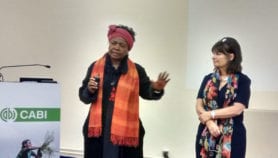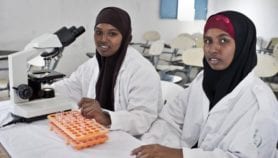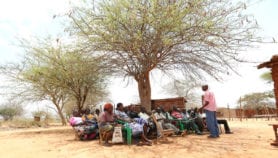Send to a friend
The details you provide on this page will not be used to send unsolicited email, and will not be sold to a 3rd party. See privacy policy.
The leaders of India and Pakistan have each committed to greater cooperation in science and technology in order to accelerate economic and social development in South Asia.
Their agreement was contained in a broad-ranging statement issued at the end of a three-day meeting by the seven members of the South Asian Association for Regional Cooperation (SAARC), held in the Pakistan capital of Islamabad earlier this week.
The main outcome of the meeting was a landmark agreement between President Pervez Musharraf of Pakistan and Prime Minister Atal Behari Vajpayee of India to begin talks on the disputed region of Kashmir.
But such an agreement is likely to have a wide impact, as it is hoped to remove the major stumbling block to increased regional collaboration in a substantial number of areas, ranging from economic affairs to combating terrorism.
The SAARC Technical Committee on Science and Technology, currently chaired by India, will meet shortly to discuss practical ways of carrying forward the commitment made in Islamabad to enhanced collaboration in science and technology.
The Committee’s annual meeting had originally been scheduled to be held before the Islamabad meeting, according to Yash Pal Kumar, head of India’s Department of Science and Technology’s international cooperation division, but was postponed until the outcome was known. “There is tremendous scope for cooperation now,” Kumar told SciDev.Net.
One of the first areas in which the impact of the agreement could be felt, according to a top official in India’s Department of Science and Technology, is in helping to remove obstacles to exchange visits by scientists from India and Pakistan, and to their participation in workshops.
The organisation of such scientific encounters has been made extremely difficult by mutual restrictions on the number of visas granted to scientists wishing to take part, and the cancellation of flights between the two countries.
The SAARC meeting was attended by heads of state and high-level delegations from each of its member states, namely Pakistan, India, Bangladesh, Bhutan, Maldives, Nepal and Sri Lanka.
In their final statement, the countries emphasise that “sharing of scientific and technological expertise, joint research and development and industrial application of higher technology should be encouraged and facilitated”.
The SAARC members also endorsed an earlier proposal to establish a regional Health Surveillance Centre to deal with emerging and re-emerging diseases, and to set up a network of institutions dealing with malaria and other vector-borne diseases.
And they agreed that more attention should be given in each of their countries to the documentation of traditional knowledge “to safeguard Intellectual Property Rights (IPRs) in medicine” — an area in which India has recently taken several important initiatives.
In principle, a commitment to enhanced regional collaboration in science and technology has always been one of SAARC’s priorities. In recent years, however, tension between India and Pakistan has effectively blocked such commitment being put into practice.
More recently, however, as relations between the two countries have begun to thaw, various concrete proposals for areas of potential collaboration have been closely examined.
In its meeting in July last year, the Technical Committee on Science and Technology identified six areas of cooperation — developing an institutional framework for biotechnology cooperation, plant tissue culture, research in medicinal and aromatic plants, vaccine and diagnostics for infectious diseases, aquaculture and human resource development.
India is currently revising a ‘concept note’ on an institutional framework for cooperation in biotechnology, after circulating it to member countries of SAARC for comment.
Technology transfer is also high on the agenda for discussion by the committee, with SAARC member states favouring modification to patent rights on technical solutions to common problems that they face.
More on Networks

Script media release
Journalists offered ‘big break’ mentoring opportunity from Radio Nigeria
03/04/19












